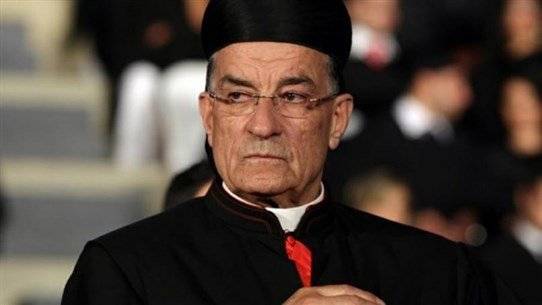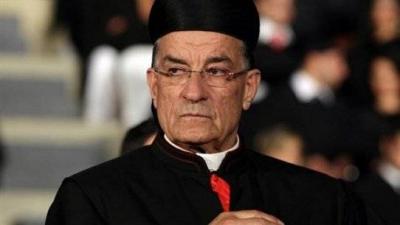"We, along with our people, reject the manipulation of the presidential election entitlement. We insist on the necessity of respecting this entitlement within its constitutional time frame, and electing an experienced, respectable, brave, and selfless leader, a neutral statesman in his integrity and committed to his patriotism. This leader should rise above factions and parties, not pose a challenge to anyone, and be capable of exercising a national, constitutional, and moral authority, while bringing together disputing parties to put the country on a path of true salvation and positive change. The current conditions of the country necessitate that this president be elected at the beginning of the constitutional deadline, not at the end, so that the people may be reassured, spirits may calm, and hopes may rise."
With these statements, Maronite Patriarch Mar Bechara Boutros Al-Rahi outlined the qualities needed in the future president about 50 days before the start of the constitutional time frame for the election on September 1st. Some considered these characteristics to be "very ideal," which might not be found in any Lebanese political figure, while others saw them as a means of salvation, marking Al-Rahi’s direct involvement in the election process out of fear of repeating past experiences of vacancy and thwarting any attempts at extension.
In this context, the Patriarchal Delegate, Bishop Sleiman Maaz, explained in an interview with "Akhbar Al-Yawm" that what the patriarch emphasizes is the respect for constitutional dates and the implementation of necessary entitlements and policies, underscoring the qualifications that must be present in the next president, informed by past experiences and the expectations for Lebanon in the coming phase. He stated: "We need a president who can rescue the country from where we have reached and restore our people to a normal state... otherwise, nothing can be built upon in this country." He added: "No one should think that we can postpone the presidential elections, warning against repeating a vacancy for two years or more as happened before, as the country, just like the people and the economy, cannot bear more."
Bishop Maaz believes it is the patriarch’s duty to warn against complacency, hoping that those in power will feel a sense of responsibility. He said: "The essence of the patriarch’s message is that we cannot continue playing with the country as it is happening today."
When asked if the patriarch’s statements imply that the specifications he outlined do not apply to any of the traditional candidates, Bishop Maaz replied: "The patriarch does not enter into the names of candidates and will not name anyone; rather, he expresses the sentiments of every Lebanese person who has endured this crisis for nearly three years; everyone has suffered from the flames of the crises."
In this context, the Patriarchal Delegate continued: "However, on the other hand, 'he who tries the tried is insane,' for those who have governed the country for over 35 years have led us here, and thus electing them again or electing figures of the same essence would only continue the path we are suffering from." Therefore, the patriarch emphasizes the characteristics of the president, as they represent the minimum requirement for any official who wants the country to survive. He warned: "Falling below the minimum threshold set by the patriarch leads to the ultimate ruin of the country."
When asked whether there will be any movement from the patriarch, Bishop Maaz recalled that the patriarch previously stated he would determine prior actions for the presidential entitlement, meaning he will not remain silent and will perform his duties as a citizen and as a responsible leader. He added that the historical role of the Maronite Patriarchate places a significant responsibility on Al-Rahi towards the nation, and no one should believe that the patriarch is raising the stakes now and may yield to any pressure later. He emphasized that Al-Rahi speaks on behalf of the Lebanese people, who cannot withstand further deterioration and need a radical solution—not just for one or two years, but a solution that leads to state-building.
He concluded: "Thus, officials must be convinced that the Lebanese state to which they have brought us cannot continue as it is; there are essential, fundamental specifications for the state that we must adhere to, and officials should forget their personal interests or the interests of the countries they are connected to. If those in power today cannot change their behavior, they should step aside and make room for others to manage affairs."




